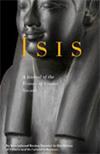History of Epidemics: A Bibliographical Essay on Secondary Sources in Italian and on Italy
IF 0.9
2区 哲学
Q2 HISTORY & PHILOSOPHY OF SCIENCE
引用次数: 0
Abstract
Italian medical history in the age of positivism showed a strong interest in epidemics. This can be seen in Alfonso Corradi’s monumental Annali (1865-1895) and in works of other 19th-century historians who addressed major public health issues in the newly unified country. Local history was also widely practiced in Italy, and it was instrumental in discovering and publishing a wealth of documentation on past epidemic and endemic diseases, as well as on measures such as quarantines that were invented or introduced in the peninsula as early as the late Middle Ages. The way Italian historians looked at epidemics in the 20th century was shaped by politics, religion and literature more than by demography, epidemiology, or technical knowledge in the medical field. This article and its accompanying bibliography will focus on regional historiography and deal with the history of plague, smallpox, cholera and malaria, and other diseases addressed in works published after the 1980s.流行病的历史:一篇关于意大利和意大利二手资料的参考文献论文
实证主义时代的意大利医学史表现出对流行病的浓厚兴趣。这可以从阿方索·科拉迪(Alfonso Corradi)的不朽著作《Annali》(1865-1895)和其他19世纪历史学家的著作中看到,他们研究了新统一国家的主要公共卫生问题。地方史在意大利也被广泛使用,它有助于发现和出版大量关于过去流行病和地方病的文献,以及早在中世纪晚期就在半岛发明或引入的隔离等措施。意大利历史学家看待20世纪流行病的方式更多地受到政治、宗教和文学的影响,而不是人口统计学、流行病学或医学领域的技术知识。本文及其附带的参考书目将侧重于区域史学,并处理鼠疫、天花、霍乱和疟疾的历史,以及20世纪80年代以后出版的作品中涉及的其他疾病。
本文章由计算机程序翻译,如有差异,请以英文原文为准。
求助全文
约1分钟内获得全文
求助全文
来源期刊

Isis
管理科学-科学史与科学哲学
CiteScore
1.00
自引率
16.70%
发文量
150
审稿时长
>12 weeks
期刊介绍:
Since its inception in 1912, Isis has featured scholarly articles, research notes, and commentary on the history of science, medicine, and technology and their cultural influences. Review essays and book reviews on new contributions to the discipline are also included. An official publication of the History of Science Society, Isis is the oldest English-language journal in the field.
The Press, along with the journal’s editorial office in Starkville, MS, would like to acknowledge the following supporters: Mississippi State University, its College of Arts and Sciences and History Department, and the Consortium for the History of Science, Technology, and Medicine.
 求助内容:
求助内容: 应助结果提醒方式:
应助结果提醒方式:


